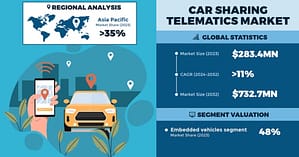Emergency and utility fleets operating in urban environments often face challenges associated with various types of controlled obstacles in public spaces. This can lead to unwanted delays, inefficient responses, safety issues, etc. By addressing these concerns with smart and secure technology and Teltonika GPS trackers, city authorities and companies can improve the efficiency and transparency of their services.
In urban areas and public spaces with limited access, emergency and utility vehicle fleets face several challenges related to barriers, doors, lifts, gates, intercoms, and similar controlled objects in modern cities. In scenarios where rapid response is critical, such as medical emergencies, fires or security breaches, every second lost due to logistical barriers can have dire consequences.
Traditional methods of accessing locked or restricted areas often require manual intervention, be it physical keys, security guards or remote authorisation processes. These approaches introduce delays and vulnerabilities, including the risk of keys being misplaced, locks being tampered with, or communication failures with central control rooms.
That said, efficiency of service and timely response play a vital role in overcoming these challenges. Let's go through some of the key aspects of them.
Inefficient emergency response: emergency services could face delays due to physical barriers and the need for manual intervention to gain access to restricted areas. This could lead to critical delays in situations where every second counts, potentially resulting in loss of life or more serious outcomes in emergencies.
Lack of data integrity and transparency: The reliability and transparency of data related to access control and management could be compromised. This could lead to mistrust among residents and stakeholders in the management of public services, and increase opportunities for fraud or manipulation of data.
Security vulnerabilities: physical keys, remote controls or manual access controls can be lost, stolen or duplicated, compromising the security of restricted areas. Without the secure and encrypted nature of blockchain-based virtual keys, public spaces could be more vulnerable to unauthorized access, and potential security breaches.
To address the above, a public space management system based on blockchain technology – a universal communication standard for IoT devices - can be used. We believe this is the right way to create this type of service for smart cities all over the world.
Solution
The solution involves the integration of one of Teltonika GPS trackers, blockchain technology, the dedicated mobile app, and smartphones to provide a seamless and secure method of admission control in various public spaces with limited access, such as housing estates, schools, office buildings, hospitals, etc. Here, for demonstration purposes, we choose the BASIC category GPS tracker FMB920 with a special customised version of the firmware.
Even though FMB920 is designed to be mounted on vehicles, here the GPS tracker must be connected to existing control mechanisms on gates or barriers. It is equipped with a SIM card that connects it to the cellular network, allowing remote communication and control.
FMB920 integration into blockchain ensures secure transactions and operations, as it can recognise and respond to commands issued by verified users on the network. Teltonika tracker provides the location coordinates of a specific barrier, acting as a bridge between the physical barrier and the digital control provided by the blockchain and a dedicated mobile app.
Platforms of blockchain technology, a universal communication standard for IoT devices, provide a secure and transparent platform for transactions and data exchange. It enables the issuing of virtual keys in the form of NFTs (Non-Fungible Tokens) to verified users. These virtual keys can perform actions, such as opening barriers, without the need for physical interaction or the presence of third-party security personnel. The inherent security features of the blockchain ensure that the keys cannot be duplicated or misused, as only authorised users can initiate and execute such transactions.
The dedicated mobile app is a user interface allowing individuals to interact with the system via smartphones. Users can open barriers remotely using the app, which communicates the command via the blockchain to the Teltonika device that controls the barrier. The app's functionality includes generating single-use keys for temporary access, which is particularly useful for guests or emergencies where immediate access is required without compromising security.
By approaching the barrier and selecting a point on the virtual map in the app, users (drivers, members of emergency and utility vehicle crew) can remotely open the selected barrier.
Finally, smartphones play a crucial role in this system, serving as the device through which users interact with the dedicated app. Thanks to it, the rushing drivers can select the barrier they want to open on a virtual map, and the app communicates this command to the blockchain network, which then signals FMB920 tracker to open the chosen barrier.
This direct communication between the smartphone and the barrier mechanism, facilitated by GPS trackers and blockchain technology, allows a seamless, secure, and efficient way of access control. For example, an ambulance crew responding to an incident can open a barrier remotely using a smartphone without stopping and wasting valuable time, while saving the lives and health of people in need.
In summary, this solution combines the reliability and connectivity of the Teltonika FMB920 tracking device with the security and transparency of blockchain technology, and the accessibility of smartphones to create a sophisticated, efficient, and secure access control system suitable for smart city, business, or individual applications, as well as utility transport, and emergency services.
Advantages
Enhanced security: blockchain's immutable ledger ensures secure, tamper-proof data transactions for access control.
Efficient access managementthe system enables instant, remote operation of gates or barriers, which is critical for emergency response and utility fleets.
Scalabilityversatile and adaptable to different public spaces, urban areas, and fleet sizes to accommodate growth and varying operational needs.
Reduced operational costsautomating access control minimises the need for manual supervision and physical keys.
Simplified restricted area managementthe system streamlines the process of managing access rights, reducing administrative workload and complexity.
If you want additional details about GPS devices click here



